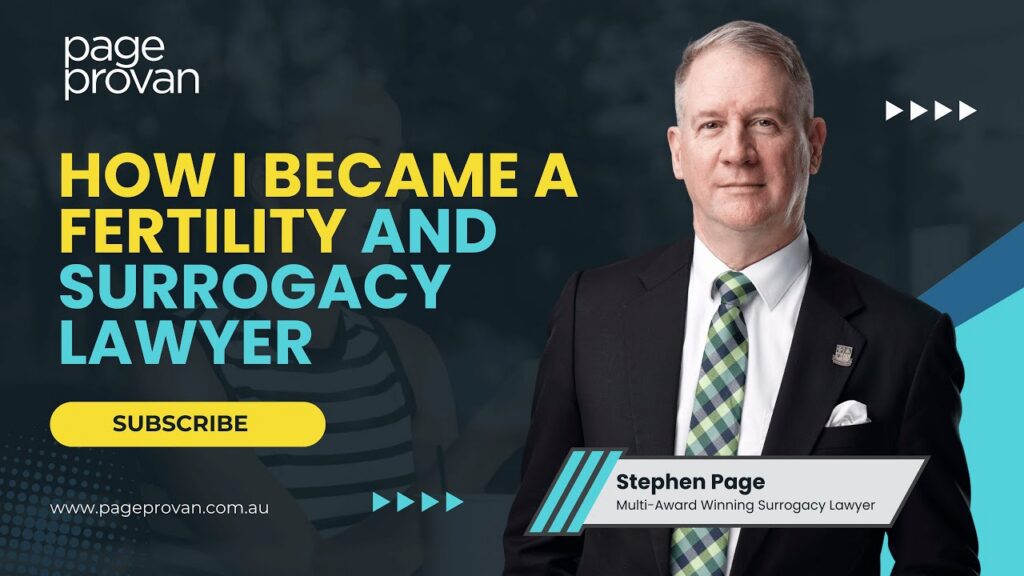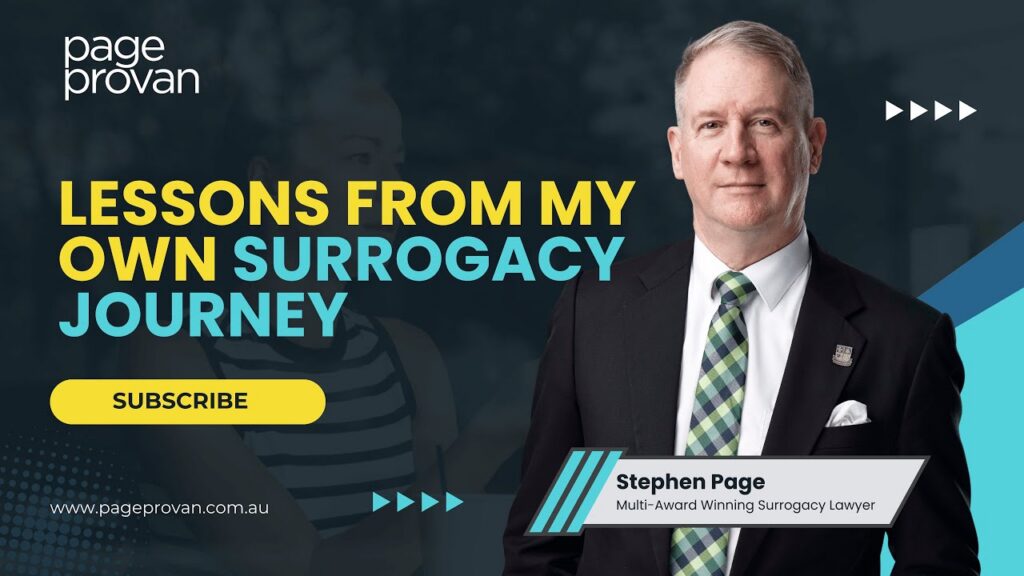How & Why You Split-Up
How and why you have split-up is a very important question. In this video, Accredited Family Law Specialist, Stephen Page discusses the importance of the answer to this question on everything that follows!
Transcript
G’day, I’m Stephen Page from Page Proven Family and Fertility Lawyers, thank you for joining me today. I’m talking about how and why you split up, influences the kind of divorce you have. Now you may think, well we split up, that’s the end of that, and now we can settle about our kids and we can settle about our money.
But let me tell you something I’ve learnt, and that is how you split up really can change everything. So the first thing I just want to say is I’ve been a family lawyer for a very long time. I was admitted as a solicitor in 1987, and I became a Queensland Law Society accredited family law specialist in 1996. So I’ve been doing full-time family law since about 1988, very, very long time.
I’ve had thousands and thousands of cases, and one of the things I always ask my clients at that first meeting is, how did you separate? Now, I hear from some of my colleagues that don’t ask that question, I think that’s dumb, and why I think it’s dumb is, once you know how the separation has occurred, then you have an idea about what the dynamics are.
It used to be the case 30 years ago when I asked that question, well we grew apart, we married too young, we married when we were about 20, and now we’re about 50 or 40, whatever the age is, and our interests are different. Now, if you have that kind of separation, you’d have to say it’s a low passion separation.
It’s one where each party is ready to move on, and as a result, it’s pretty easy to negotiate a deal with everything else being equal. There isn’t some drama at the centre of it. On the other hand, if there’s been domestic violence, then that’s a case of watching out, if you have domestic violence, then we have to look at whether there’s drug and alcohol use and mental health issues.
So these are all tick a box, if we’ve got those, then we have to worry about the others, and if we’ve got those, mental health, drug and alcohol, has there been prior criminal behaviour, for example, then we have to look at safety issues, and these can’t just be swept under the carpet. Separately, I’ll be talking about making sure that you’re safe when you go through a divorce.
But I think it’s important to acknowledge that domestic violence is one of those red ticket items, if you got that, then we’ve got to make sure that you and your children are safe. But another one is, was the husband, and typically it’s a husband, sometimes it’s a wife, unfaithful, and were they caught?
Now, most of the time it’s not the bursting into the bedroom and seeing your spouse having sex with somebody else, I have had cases like that. More the case, it’s, well, there was a confession, or these days seeing something on the phone or some online comment, and then the pennies drop. When that happens, the wronged party can feel very, very, very angry, and that’s understandable, being betrayed in this way goes to the fundamentals of your relationship.
Family law, however, generally ignores the fact that there has been an affair because divorce isn’t based on conduct and hasn’t been since 1976, it’s based on, did you separate for a year? And therefore, there is an irretrievable breakdown of marriage. But someone who feels wronged in that way and with their anger can let it lash out.
It lashes out onto the ex, it then lashes out onto the children, and no matter how much you might bottle it up, if you’re that angry person, the impact on your children can be terrible, and that in turn, aside from how you feel, might impact on them permanently.
It might impact on their relationships later on, and I’d certainly urge you that if you’re in that boat, go off and get some counselling, talk to a counsellor. Deal with those anger issues because what you might do with your anger is aside from poisoning the well with your children, end up with a much more bitter divorce than you need to go through, end up lasting a long, long time rather than being quick, and end up spending a lot more money, many thousands of dollars more than you need to.
For example, if you have a negotiated deal, even though you’re really angry, you might end up keeping the house. But on the other hand, if you are so angry that everything else pales into insignificance because you’re so focused on what the wrong has been done to you, you may spend so much in legal fees, you lose your house and that seems pretty pointless, to be honest. I would have thought it’s much better that you keep your house and not lose all your money in legal fees.
If you have one of those divorces where everything is just so angry, step back, calm down, talk to a counsellor, talk to a lawyer who represents your interests, not your anger, and then move forward. Don’t act in the heat of the moment in deciding that you’re going to cut off the children from your ex or going to punish him or her because of whatever you perceive has been done wrong.
Take a step back, calm down, go and talk to that counsellor, go and talk to that lawyer and deal with it rationally, because otherwise, you could poison the well for your children, make yourself angry for the rest of your life, and you don’t need to do that. You can actually enjoy the rest of your life and help preserve your finances, because this is the most important financial decision you will ever make, and you want to make sure you get it right first time.












